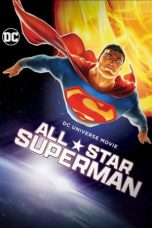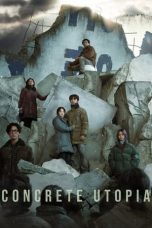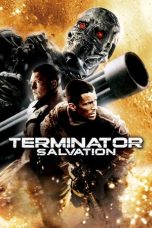- Source: Gung ho
- Source: Gung Ho
- Source: Gung Ho!
Gung ho () is an English term, with the current meaning of 'overly enthusiastic or energetic'. It originated during the Second Sino-Japanese War (1937–1945) from a Chinese term, 工合 (pinyin: gōnghé; lit. 'to work together'), short for Chinese Industrial Cooperatives (Chinese: 工業合作社; pinyin: Gōngyè Hézuòshè).
Overview
The linguist Albert Moe concluded that the term is an "Americanism that is derived from the Chinese, but its several accepted American meanings have no resemblance whatsoever to the recognized meaning in the original language", and that its "various linguistic uses, as they have developed in the United States, have been peculiar to American speech". In Chinese, concludes Moe, "this is neither a slogan nor a battle cry; it is only a name for an organization".
The term was picked up by United States Marine Corps Major Evans Carlson from his New Zealand friend, Rewi Alley, one of the founders of the Chinese Industrial Cooperatives. Carlson explained in a 1943 interview: "I was trying to build up the same sort of working spirit I had seen in China where all the soldiers dedicated themselves to one idea and worked together to put that idea over. I told the boys about it again and again. I told them of the motto of the Chinese Cooperatives, Gung Ho. It means Work Together — Work in Harmony."
Carlson used gung ho as a motto during his unconventional command of the 2nd Marine Raider Battalion, leading to other marines adopting the term to mean overly enthusiastic. From there, it spread throughout the U.S. Marine Corps, where it was used as an expression of spirit, and then into American society as a whole when the term was the title of a 1943 war film, Gung Ho!, about the 2nd Raider Battalion's raid on Makin Island in 1942.
See also
History of the cooperative movement in China
Chinese Industrial Cooperatives
List of United States Marine Corps acronyms and expressions
References
External links
"Gung-Ho". Oxford Dictionaries. Archived from the original on 7 July 2012.
"Gung Ho". ChinaPage.com. Archived from the original on 12 May 2008.
Gaines, R.W. "Gung Ho! According to Evans F. Carlson". Gunny G's Globe and Anchor – via Angelfire.
Knodell, Kevin (17 May 2014). "Gung Ho! The Communist Origins of the Marine Corps' Famous Slogan". War Is Boring.
Gung ho is an English-language term taken from Chinese.
Gung Ho may also refer to:
Film and television
Gung Ho (film), a 1986 American comedy starring Michael Keaton
Gung Ho (TV series), a 1986–1987 American sitcom based on the 1986 film
Gung Ho!, a 1943 American war film starring Randolph Scott
Music
Gung Ho (album), a 2000 album by Patti Smith, or the title song
"Gung-Ho", a song by Anthrax from the 1985 album Spreading the Disease
Gung Ho, a 1980s Irish band formed by former members of the Boomtown Rats
Other uses
Gung-Ho (G.I. Joe), a fictional character in the G.I. Joe universe
Gung Ho – ICCIC, an organization in China to support the Gung Ho movement
GungHo Online Entertainment, a Japanese video game corporation
Gung Ho! (full title: Gung Ho!: The Story of Carlson's Makin Island Raiders) is a 1943 American war film directed by Ray Enright and starring Randolph Scott. The story is based somewhat on the real-life World War II Makin Island raid led by Lieutenant Colonel Evans Carlson's 2nd Marine Raider Battalion.
Plot
Lieutenant C.J. Cristoforos announces that the United States Marine Corps is seeking volunteers for a hazardous mission and special unit. Among the volunteers are a hillbilly who, when asked whether he can kill someone, responds that he already has. Other volunteers include Harbison, an ordained minister who wants the most dangerous assignment because that is where he will be needed most; "Pig Iron", a boxer from a background of poverty and hard work; Frankie Montana (from Brooklyn), who resents being called a "no-good kid" who is initially rejected by Cristoforos but wins him over; battling half-brothers Larry O'Ryan and Kurth Richter; a Filipino wishing to avenge his sister, who was caught in Manila by the Japanese, who teaches the Raiders knife fighting; an embittered Marine whose brother was killed at Pearl Harbor; a man who fought against fascism in Spain and Greece; and one Marine who admits, "I just don't like Japs".
Sgt. "Transport" Anderof is reunited with the commander of the unit, Lt. Col. Thorwald, with whom he served in China. Thorwald explains that he left the Marine Corps to serve with the Chinese communist Eighth Route Army fighting the Japanese during the Second Sino-Japanese War to find out about them and evaluate their chances. Afterward, Thorwald decided to form a unit using the qualities of Gung Ho or "work together".
Those who make it through the training are sent to Hawaii for further jungle warfare training, where they witness the damage of the attack on Pearl Harbor. In Hawaii they hear a radio bulletin announcing the Battle of Guadalcanal. The Marines are ordered to board two submarines destined for a commando raid on a Japanese-held island.
After a claustrophobic voyage, the Raiders invade the island from rubber boats. The Marine landing is met by fire from snipers hiding in palm trees. The Marines dispose of them, attack the Japanese headquarters, wipe out the garrison, destroy installations with explosives, then board the submarines for their return home.
Cast
Randolph Scott as Col. Thorwald
Alan Curtis as Pvt. John Harbison
Noah Beery Jr. as Cpl. Kurt Richter
J. Carrol Naish as Lt. C.J. Cristoforos
Sam Levene as Plt Sgt. Leo "Transport" Andreof
David Bruce as Larry O'Ryan
Richard Lane as Capt. Dunphy
Walter Sande as Gunner McBride
Louis Jean Heydt as Lt. Roland Browning
Robert Mitchum as Pvt. "Pig-Iron" Matthews
Rod Cameron as Pvt. Rube Tedrow
Grace McDonald as Kathleen Corrigan
Milburn Stone as Cmdr. Blake
Peter Coe as Pvt. Kozzarowski
Harold Landon as Pvt. Frankie Montana
Chet Huntley as Narrator
Production
When producer Walter Wanger acquired the rights to the Makin Island raid and Lt. W.S LeFrançois' story, the United States Navy film liaison Lt. Albert J Bolton insisted that neither Carlson nor his executive officer James Roosevelt be singled out. The screenplay depicted a fictional Lt. Col. Thorwald with no executive officer. The screenplay did include a character played by J. Carrol Naish, a Raider lieutenant of Greek extraction based on Marine Raider Lt. John Apergis as well as Gunnery Sergeant Victor "Transport" Maghakian who served in the raid and survived the war. Though many incidents in the film did not occur in the real Makin Island raid, Carlson wrote of his being pleased with the film to Wanger.
Like many other films about the United States Marine Corps, the movie was filmed at Marine Corps Recruit Depot San Diego and Camp Pendleton with Marine extras and technical advisors including Carlson, Maghakian and Lt. Wilfred Sylvio LeFrancois with all three men being awarded the Navy Cross on the actual raid. The Japanese were played by Chinese and Filipino extras.
Themes
The fast-moving film is a template for many war films and other adventure or western films where a group of professional killers and misfits in polite society are handpicked by an inspiring leader, trained to perfection, then use their initiative and skills in marksmanship, combat and knife fighting on an enemy who greatly outnumber them.
Thorwald/Carlson lectures throughout the film that the Japanese have no initiative and cannot think for themselves or deviate from a plan; thus unexpected action pays off. This is demonstrated in several scenes where a Marine defeats his opponent in unarmed combat by spitting tobacco in his eyes, a small but fast runner strips down to his trousers and quickly zig-zags through enemy fire to hurl hand grenades at a machine-gun nest, Marines destroy a Japanese pillbox and its occupants by squashing both with a road construction steamroller, and a speechless Robert Mitchum who has been shot in the throat and is unable to give warning, kills a Japanese infiltrator attempting to kill the battalion surgeon (Milburn Stone) by throwing his knife in the Japanese soldier's back. The climax of the film has the Raiders painting a giant American flag on the roof of a building, then luring the counterattacking Japanese to the area where their own air force bombs and strafes them.
In contrast to the Japanese and the rest of the American military, Thorwald orders that his officers wear no rank insignia and have no special privileges. He tells his Raiders, "I will eat what you eat and sleep where you sleep" and participate in the same training. Thorwald's Marines participate in "Gung Ho Sessions" where they discuss the unit's plans and each man participates without regard to rank.
Reception
Bosley Crowther in a January 1944 review for The New York Times praised the film, its performances and settings but said "the stabbings and stickings go on ad nauseum. [sic] Gung Ho! is for folks with strong stomachs and a taste for the submachine gun".
= Box Office
=The movie was a big hit and earned profits of $577,460.
It recorded admissions in France of 748,212 when released there in 1945.
= Re-issue
=The film was re-released in the early 1950s by Realart Pictures who gave Robert Mitchum second billing on the posters.
The film has often been shown to recruits and Marines of the United States Marine Corps.
Influences on popular culture
In the early 1960s Louis Marx and Company came out with a "Gung Ho Commando Outfit" for children.
See also
Public domain film
List of American films of 1943
List of films in the public domain in the United States
References
External links
Gung Ho! on YouTube
Gung Ho! at the AFI Catalog of Feature Films
Gung Ho! at IMDb
Gung Ho! is available for free viewing and download at the Internet Archive
Bugs Bunny-War Bonds, trailer of Gung Ho, 1943, retrieved 2017-09-21
Gung Ho! at the TCM Movie Database
Kata Kunci Pencarian:
- Kota Hồ Chí Minh
- Koperasi Industri Tiongkok
- So Yamamura
- Moonswept
- Mimi Rogers
- Namkoong Min
- Bruce Lee
- Lucien Hubbard
- The Cursed
- Ray Enright
- Gung ho
- Gung Ho
- Gung Ho (film)
- Gung Ho!
- Gung Ho (album)
- GungHo Online Entertainment
- List of Trigun characters
- Gung-Ho (G.I. Joe)
- Gung Ho (TV series)
- Johnnie Fingers
Concrete Utopia (2023)
No More Posts Available.
No more pages to load.








